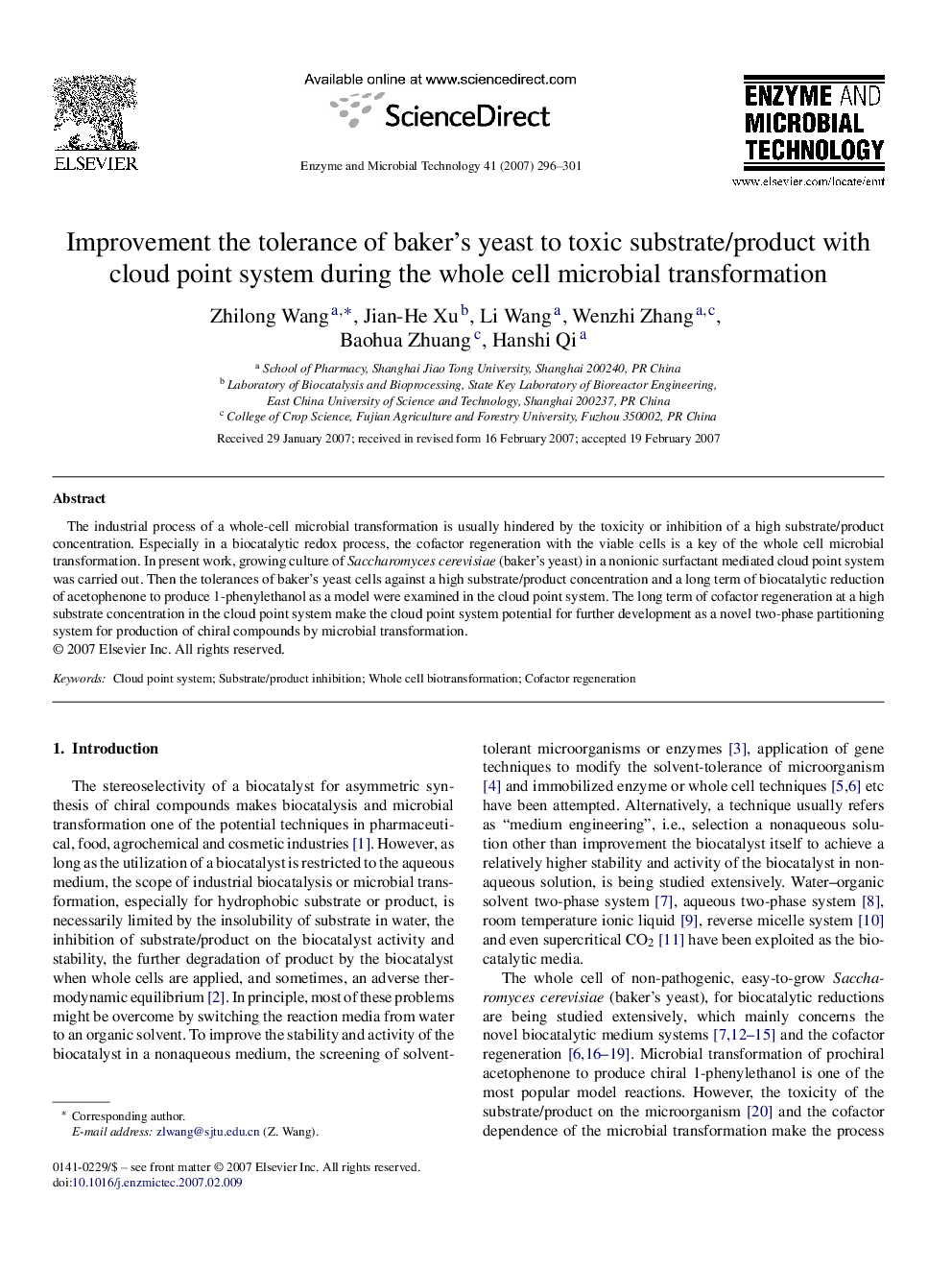| Article ID | Journal | Published Year | Pages | File Type |
|---|---|---|---|---|
| 18724 | Enzyme and Microbial Technology | 2007 | 6 Pages |
The industrial process of a whole-cell microbial transformation is usually hindered by the toxicity or inhibition of a high substrate/product concentration. Especially in a biocatalytic redox process, the cofactor regeneration with the viable cells is a key of the whole cell microbial transformation. In present work, growing culture of Saccharomyces cerevisiae (baker's yeast) in a nonionic surfactant mediated cloud point system was carried out. Then the tolerances of baker's yeast cells against a high substrate/product concentration and a long term of biocatalytic reduction of acetophenone to produce 1-phenylethanol as a model were examined in the cloud point system. The long term of cofactor regeneration at a high substrate concentration in the cloud point system make the cloud point system potential for further development as a novel two-phase partitioning system for production of chiral compounds by microbial transformation.
